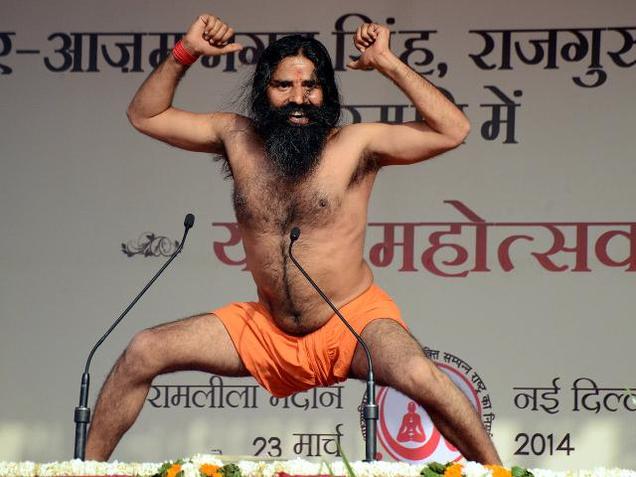The Department of Science and Technology has funded a wide range of research institutions — including the All India Institute of Medical Sciences and the Haridwar-based Patanjali Research Foundation, promoted by yoga proponent Baba Ramdev — to study the efficacy of yoga and whether it has a role in alleviating stroke, type-2 diabetes, Parkinson’s and schizophrenia.
After it advertised for research proposals last August, the department got over 700 which it shortlisted to 16 for the first year. “We’ve had a tremendous response,” said Ashutosh Sharma, Secretary, Department of Science and Technology, “but we’ve been highly selective and made it clear that [results] should be publishable in the top international journals.”
SATYAM, an acronym for Science and Technology of Yoga and Medicine, has been conceived to develop good science around yoga and has nothing to do with religious beliefs, say associated officials. “We can’t say it [yoga] will cure everything, say 4 stage cancer but we want good science based on analytical rigour that tests it,” Mr. Sharma said.
Measuring brain activity
The bulk of the studies, as a review of the approved proposals seen by The Hindu, are about measuring brain activity using electro-encephalography and functional magnetic resonance imaging — standard tools that are used to check what kind of electrical activity takes place and which regions of the brain are most active — when the brain is involved in a variety of cognitive tasks.
“There’ve been studies that suggest Pranayam can influence attention and awareness,” said Dr. Shirley Telles, Director of Research, Patanjali Foundation.
“We are measuring this activity. This is an extension of work that we’ve been working on for some time.”
Other researchers funded under SATYAM belong to the National Institute of Mental Health and Neuro Sciences, Bengaluru; Sree Chitra Tirunal Institute of Medical Sciences and Technology, Thiruvananthapuram (SCTIMST); Centre for Academic Research, Bengaluru; Ram Manohar Lohia Hospital, New Delhi; Kasturba Medical College, Mangalore and SKN Medical College & General Hospital, Pune.
Use in therapies
Some say they are checking if certain yoga practices may be plausibly used in therapies. Dr. Ramshekhar Menon, a psychiatrist at SCTIMST told The Hindu that his group will investigate if certain yoga tasks could be used to help people who show the initial symptoms of Alzheimer’s.
This would be done by observing brain activity in expert yoga practitioners and comparing them with those who were taught certain exercises and if these actually led to improved alertness.
Independent scientists said India needed to catch up with the West where groups were studying various aspects of yoga and meditation and its relationship to the brain.
“We are already about 30-40 years behind…but it’s time Indian scientists jumped in,” said Dr. Narayanan Srinivasan, who leads the cognitive science programme at the University of Allahabad and was among the committee members screening proposals. “We were conscious of all aspects around yoga and some proposals were really bad. But I think a good beginning has been made.”
H.B. Singh, who coordinates funding for the programme at the DST said those who vetted the proposals included yoga experts, neurologists and were “critical” with their selections.
“There were multiple rounds of screening but I think several researchers now have a better grasp of what specific aspects of yoga they want to investigate,” he added, “We’ll likely allot more funds next year.”

